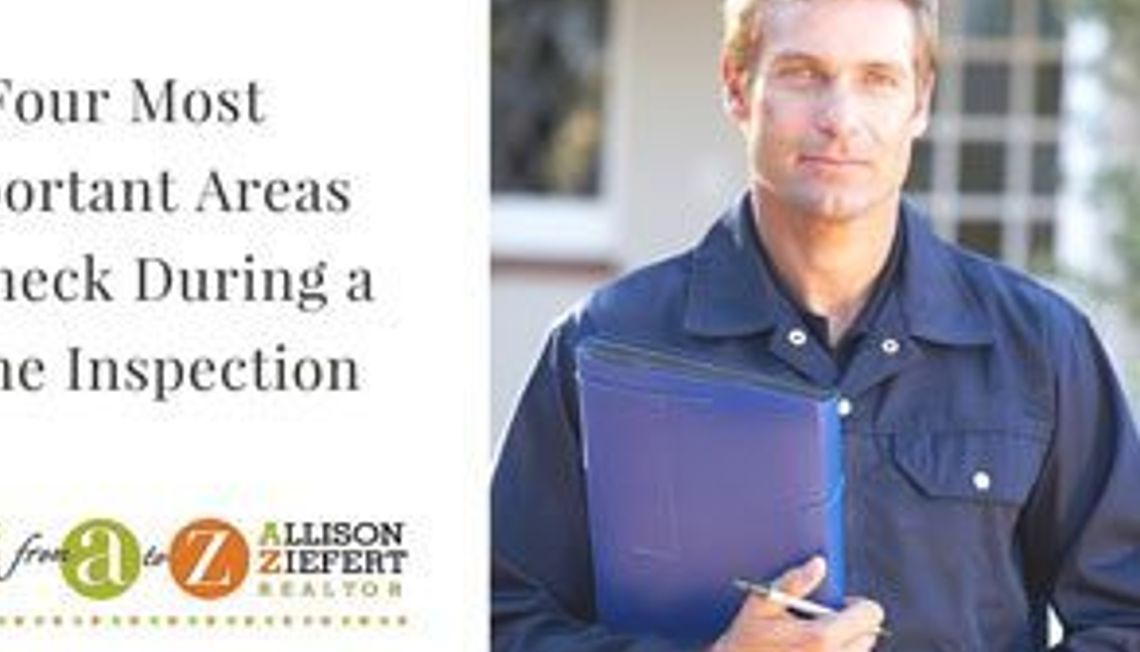
A typical inspection will last anywhere from two to three hours with the home inspector examining numerous parts of the home’s exterior and interior, including the plumbing, heating, electrical, appliances, foundation, roof and garage. The inspector will then present you with a written report anywhere from 24 to 48 hours after the inspection that will detail everything they encountered. But it’s in your best interest to follow the inspector around the day of the inspection so that you can learn all about your new house, including the ages and approximate life expectancies of your major systems, including heating, air and water heater.
Here, Bill Root of Roots Home Inspection in Union County, NJ, who regularly inspects homes in both Maplewood and South Orange, tells us the four most important areas to check during a home inspection:
- Structure.
The home inspector will visually examine the physical structure of the house, from the attic to the foundation, looking for structural inadequacies or foundation movement, significant cracking, settlement, or slippage. This will help buyers determine whether there are any major structural defects before they buy the house, and will minimize any unpleasant surprises or significant financial burdens later on.
- Wood-destroying insects.
Wood-destroying insects such as termites, carpenter ants, carpenter bees, and wood-boring beetles can do extensive damage to a home if left untreated, so it’s incredibly important to recognize their presence. A home inspector will look for common signs that these insects often leave behind, but can only inspect what he sees and can access. “A trained, experienced, licensed professional can identify the presence of termites without even seeing the bugs,” Root says. “They leave specific traces including damage and mud tubes.” If your inspection is taking place in the cold-weather months, when the insects are not active, your inspector will look for evidence of a past infestation and/or damage. Since many lenders require evidence that the property is free and clear of wood-boring insects, this part of the inspection is very important. If insects indeed are discovered, you will want to ask the seller to treat the area and give proof to your lender that the problem has been removed.
- Presence of an underground oil tank.
In New Jersey homes older than 30 years, it’s especially important to search for the presence of an underground oil tank. The older the home, the higher the likelihood that it exists on the property. And since most sellers are not the original builder or owners of the property, they may be unaware of its existence. The problem with an underground tank is that if it leaks, it will contaminate the soil resulting in exorbitant cleanup costs—ranging from $10,000 to more than $100,000 if groundwater is affected. So it’s especially important to be sure if your house has an underground oil tank buried on the property. While your home inspector can check for obvious signs of a buried tank, such as pipes coming through the basement wall/floor or fill pipes in the yard, the only way to be sure is to have an electronic scan done on the property by a certified tank sweep company, which costs about $250. “If the owner claims to have removed a tank, then you must obtain all paperwork including removal certifications and inspections to protect yourself against future problems,” Root says. “If you know that an underground tank is present, be sure that the seller has tank insurance and have it transferred to you at or before closing.” If no insurance policy exists, you should have it tested, certified, and insured by a qualified company prior to closing.
- Test for radon.
Radon is a natural gas that comes from the ground but is colorless, odorless, and tasteless and cannot be determined through a visual inspection. Because it comes from the ground, it is often found trapped in the basement of a home. Since elevated levels are hazardous to your health, a laboratory test must be performed to determine its presence. If radon levels are above 4.0 pic/l, you should ask the seller to remediate it with the installation of a ventilation system. “For all New Jersey home inspections with a basement, we recommend a radon test,” says Root. This testing can be completed during your home inspection.





 By submitting information, I am providing my express written consent to be contacted by representatives of this website through a live agent, artificial or prerecorded voice, and automated SMS text at my residential or cellular number, dialed manually or by autodialer, by email, and mail.
By submitting information, I am providing my express written consent to be contacted by representatives of this website through a live agent, artificial or prerecorded voice, and automated SMS text at my residential or cellular number, dialed manually or by autodialer, by email, and mail.
